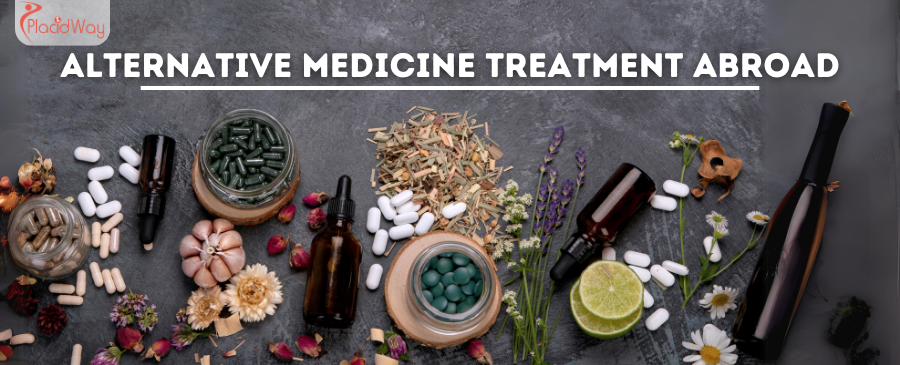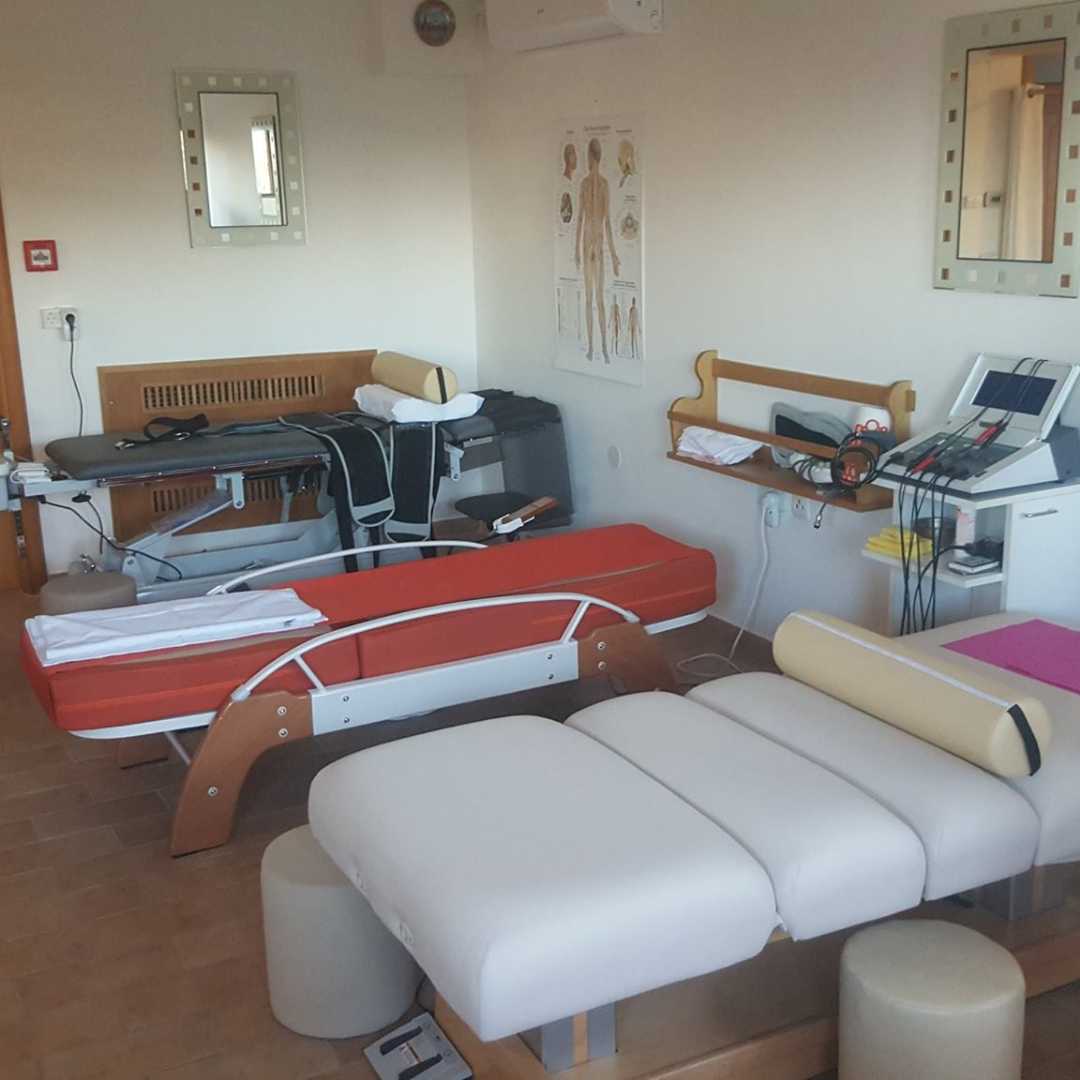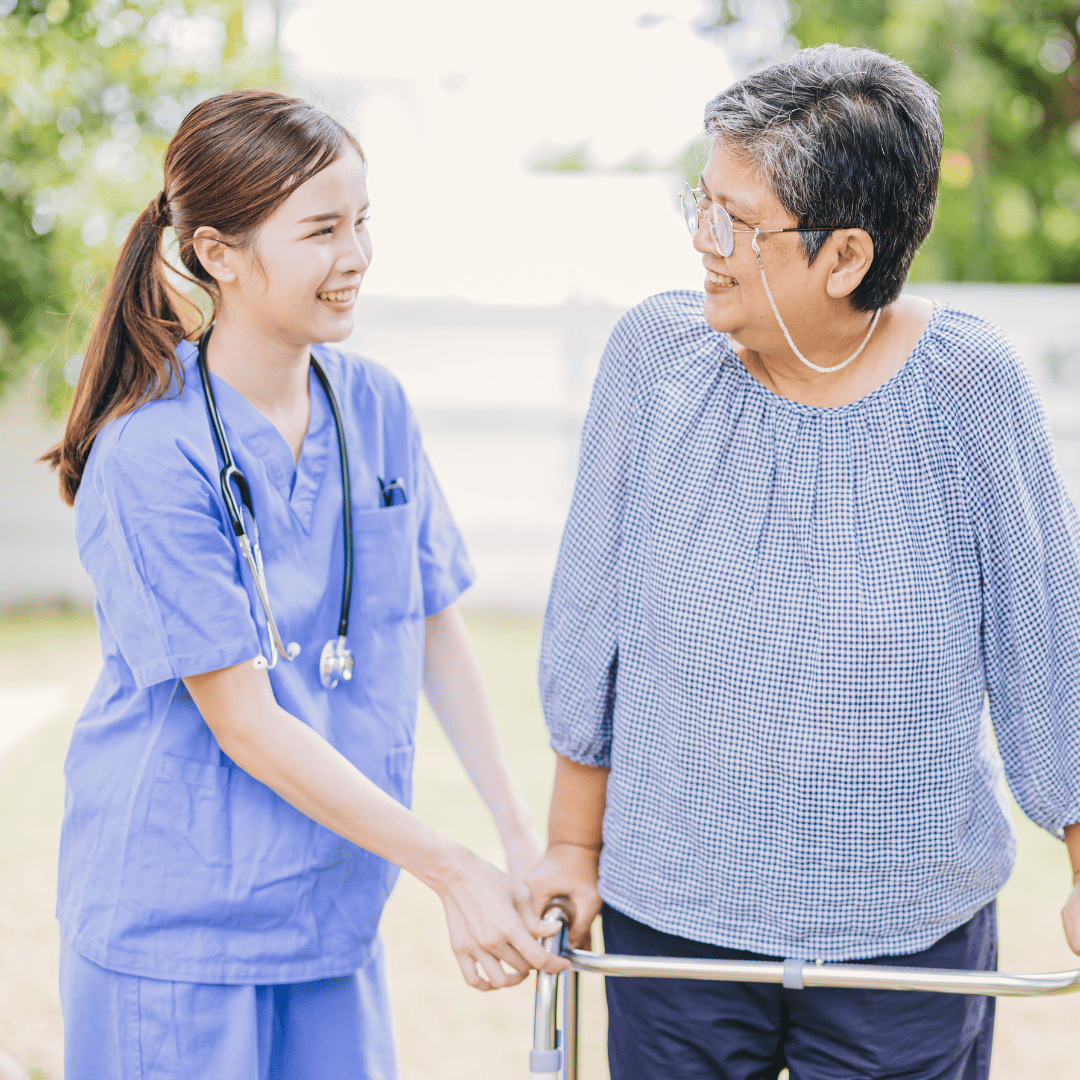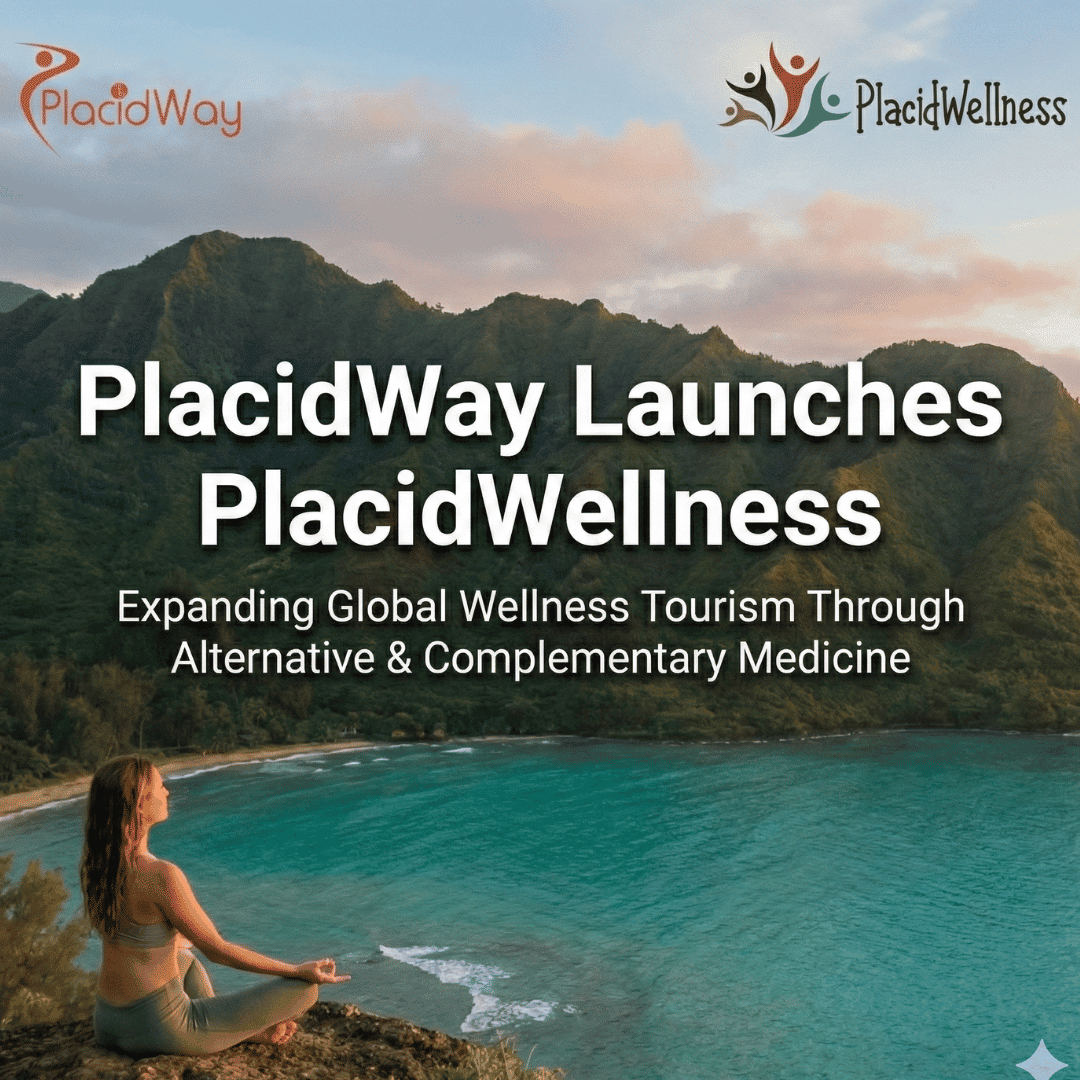
A Patient's Guide to Alternative Medicine
In a world where traditional medicine provides remarkable solutions, many people are also looking for complementary or alternative ways to manage their health and improve their well-being. This has led to a growing interest in alternative medicine—a diverse group of health systems, practices, and products that are not generally considered part of conventional medicine. From ancient practices like Ayurveda and Traditional Chinese Medicine (TCM) to modern therapies like chiropractic care and naturopathy, these approaches focus on treating the whole person—mind, body, and spirit.
This growing interest has also fueled a new trend: medical tourism for alternative medicine. Patients are now traveling across the globe to seek authentic, high-quality, and affordable holistic treatments. Imagine experiencing a traditional Ayurvedic detox in the serene landscapes of India or receiving authentic acupuncture from a master practitioner in China. Medical tourism makes this possible, often at a fraction of the cost you would pay at home. It combines the quest for health with the adventure of travel, creating a unique opportunity for healing and discovery. This guide will walk you through everything you need to know about pursuing alternative medicine abroad.
What is alternative medicine?
Think of healthcare as a global menu. Conventional Western medicine, with its focus on surgery, pharmaceuticals, and diagnostics, is like a familiar and trusted cuisine. Alternative medicine represents the rest of the world's diverse culinary traditions. It encompasses ancient systems that have been practiced for thousands of years and newer therapies developed over the last century.
It's important to distinguish it from two related terms. Complementary medicine is used alongside conventional medicine (e.g., using acupuncture to manage chemotherapy side effects). Integrative medicine is a total approach that combines conventional and complementary therapies in a coordinated way. Alternative medicine, in its strictest sense, is used instead of conventional treatments.
What are the different types of alternative medicine?
The world of alternative medicine is vast and diverse. Here’s a breakdown of its main categories to help you understand the options available:
- Whole Medical Systems: These are complete systems of theory and practice that have evolved over time in different cultures. Examples include:
- Ayurveda: An ancient Indian system that aims to balance the body's life energies (doshas) through diet, herbs, and therapies.
- Traditional Chinese Medicine (TCM): Focuses on balancing the flow of vital energy, or qi, through practices like acupuncture and herbal medicine.
- Naturopathy: A system that uses natural remedies to help the body heal itself, incorporating diet, exercise, and lifestyle counseling.
- Mind-Body Medicine: These techniques focus on the powerful connection between your mind and body. Examples are meditation, yoga, prayer, and art therapy. They are widely used for stress reduction and managing chronic conditions.
- Biologically Based Therapies: This category uses substances found in nature. It includes herbal supplements, special diets, vitamins, and aromatherapy (using essential oils).
- Manipulative and Body-Based Methods: These methods are based on the manipulation and/or movement of one or more parts of the body, such as chiropractic adjustments, osteopathic manipulation, and massage therapy.
- Energy Therapies: These therapies involve the manipulation of energy fields. Some, like acupuncture, focus on energy fields within the body (biofields), while others, like Reiki, involve the use of external energy sources (bioelectromagnetic-based therapies).
Is alternative medicine safe and effective?
This is one of the most important questions patients ask. The answer isn't a simple yes or no. The safety and effectiveness depend heavily on the specific therapy, the skill of the practitioner, and the patient's health condition. For example, yoga and meditation have been extensively studied and are considered very safe and effective for stress reduction and flexibility. On the other hand, certain herbal supplements can have powerful effects and may interact dangerously with prescription medications.
The key to safety is to be an informed consumer. Always research the therapy you are considering. Consult with your primary care doctor before starting any new treatment, especially if you have existing health conditions or are taking medication. Most importantly, choose a qualified and licensed practitioner. A well-trained professional will conduct a thorough assessment and explain the potential risks and benefits clearly.
Who is a good candidate for alternative medicine?
Alternative medicine can benefit a wide range of people. You might be a good candidate if you:
- Suffer from a chronic condition like back pain, arthritis, migraines, or fibromyalgia, and are looking for ways to manage your symptoms better.
- Experience stress, anxiety, or insomnia and are looking for natural ways to improve your mental well-being.
- Are undergoing conventional medical treatment (like for cancer) and want to use complementary therapies to manage side effects and improve your quality of life.
- Are generally healthy but want to focus on preventative care and optimizing your overall wellness.
- Feel that conventional medicine has not fully addressed your health concerns and are looking for a different approach.
It's crucial to remember that alternative medicine should not be used to replace conventional care for serious or life-threatening conditions or in medical emergencies.
What conditions can alternative medicine treat?
While alternative therapies are not typically "cures" in the conventional sense, they are highly effective at managing symptoms and improving overall function for a variety of health issues. Many people turn to alternative medicine for relief from:
- Chronic Pain: Acupuncture, chiropractic care, and massage are widely used for back pain, neck pain, and arthritis.
- Mental and Emotional Health: Yoga, meditation, and mindfulness are proven to help with stress, anxiety, and depression.
- Sleep Disorders: Therapies like aromatherapy, herbal remedies (like valerian root), and mind-body practices can improve sleep quality.
- Digestive Problems: Probiotics, dietary changes, and herbal medicine are often used for conditions like Irritable Bowel Syndrome (IBS).
- Headaches and Migraines: Biofeedback, acupuncture, and massage can reduce the frequency and intensity of headaches.
Why do people travel abroad for alternative medicine?
The decision to travel for healthcare is a big one, and patients are motivated by several powerful factors:
- Authenticity and Expertise: Many people want to experience healing traditions in the places they originated. This means traveling to India for authentic Ayurveda, China for Traditional Chinese Medicine, or Thailand for traditional Thai massage. These destinations offer practitioners who have inherited generations of knowledge.
- Significant Cost Savings: Comprehensive wellness programs, such as a multi-week Ayurvedic retreat or intensive acupuncture courses, can be significantly more affordable abroad than in countries like the US or UK.
- Access to More Options: Some alternative therapies may not be regulated, recognized, or available in a patient's home country. Medical tourism opens up a world of possibilities.
- A True Healing Retreat: Traveling allows patients to step away from the stresses of daily life and fully immerse themselves in a healing environment. Many international centers are located in beautiful, serene settings that contribute to the therapeutic process.
What are the best countries for alternative medicine tourism?
Different countries are renowned for specific healing traditions. Here are some of the top destinations:
- India: The birthplace of Ayurveda and yoga. Kerala, in Southern India, is famous for its world-class Ayurvedic hospitals and wellness retreats.
- China: The definitive destination for Traditional Chinese Medicine (TCM). Patients travel here for expert acupuncture, herbal medicine, and practices like Tai Chi and Qigong.
- Thailand: Known for its incredible Thai massage, herbal compresses, and holistic wellness resorts that blend healing with luxury.
- Germany: A European hub for naturopathic and homeopathic medicine, with many specialized clinics known as "Heilpraktikers".
- Mexico: Its proximity to the United States has made it a popular destination for a variety of alternative and integrative treatments, often at highly competitive prices.
How much does alternative medicine cost abroad?
One of the biggest draws of medical tourism is the potential for cost savings. Prices can vary widely, but here is a general comparison to give you an idea:
| Procedure / Treatment | Average Cost in USA/UK | Average Cost in India/Thailand/Mexico | Potential Savings |
|---|---|---|---|
| Acupuncture Session | $75 - $150 | $30 - $60 | 50-60% |
| Week-Long Ayurvedic Retreat (Panchakarma) | $5,000 - $10,000 | $1,500 - $4,000 | 60-70% |
| Chiropractic Adjustment | $60 - $200 | $30 - $80 | 40-60% |
These savings allow patients to afford more comprehensive or longer treatment programs than they could at home, even after factoring in the cost of flights and accommodation.
How do I choose a reputable alternative medicine clinic abroad?
Choosing the right clinic is the most critical step in your medical tourism journey. Here’s a checklist to guide you:
- Check Credentials: Ensure that the practitioners are licensed, certified, and have extensive training in their field.
- Read Patient Reviews: Look for testimonials and reviews on independent platforms, not just the clinic's own website.
- Look for Accreditations: See if the clinic is accredited by any national or international healthcare organizations.
- Communicate Directly: Ask for a video consultation before you book. This allows you to speak with the practitioner, ask questions, and get a feel for their approach.
- Verify the Facility: Look at photos and videos of the facility to ensure it is clean, safe, and professional.
- Use a Facilitator: Companies like PlacidWay vet clinics and practitioners for you, taking the guesswork and risk out of the process.
What are the risks of seeking alternative treatments overseas?
While medical tourism offers many benefits, it's important to be aware of the potential risks. These can include a lack of regulation in some countries, leading to varying standards of care and practitioner qualifications. Language barriers can sometimes pose a challenge, and there might be different cultural approaches to patient care.
Additionally, traveling while you are not feeling your best can be stressful. The best way to minimize these risks is through meticulous planning. Work with a reputable medical tourism agency, choose accredited facilities, and ensure you have a clear communication plan with your chosen clinic. Having travel insurance that covers medical complications is also essential.
What should I expect during my first alternative medicine consultation?
Your first consultation with an alternative medicine practitioner will likely be very different from a standard doctor's visit. It is usually much longer and more in-depth. The practitioner's goal is to understand you as a whole person, not just a collection of symptoms.
Be prepared to discuss your diet, sleep patterns, stress levels, relationships, and emotional state, in addition to your physical complaints. In systems like TCM or Ayurveda, they may also use diagnostic techniques like examining your tongue or pulse. This thorough intake allows them to create a highly personalized treatment plan tailored to your unique constitution and health needs.
How can I ensure continuity of care after returning home?
A successful healing journey doesn't end when you fly home. To maintain the benefits of your treatment, continuity of care is key. Before you leave the international clinic, request a complete copy of your treatment records, including the diagnosis, therapies performed, and any recommendations for diet, supplements, or lifestyle changes.
Share this information with your primary care doctor back home. It is also a good idea to research and find a local practitioner who is familiar with the type of therapy you received. They can help you integrate the recommendations into your daily life and provide ongoing support, ensuring your investment in your health continues to pay dividends long after your trip.
Your Journey to Global Wellness Starts Here
Ready to explore a world of holistic healing? Your path to wellness doesn't have to be limited by borders. PlacidWay connects you with trusted, world-class alternative medicine centers globally, vetted for their quality, expertise, and patient care. Whether you're seeking an authentic Ayurvedic retreat, advanced naturopathic care, or Traditional Chinese Medicine, we are here to guide you.
Contact us today for a free consultation and let us help you design a personalized healing journey that aligns with your mind, body, and spirit.







.png)
.png)

Share this listing